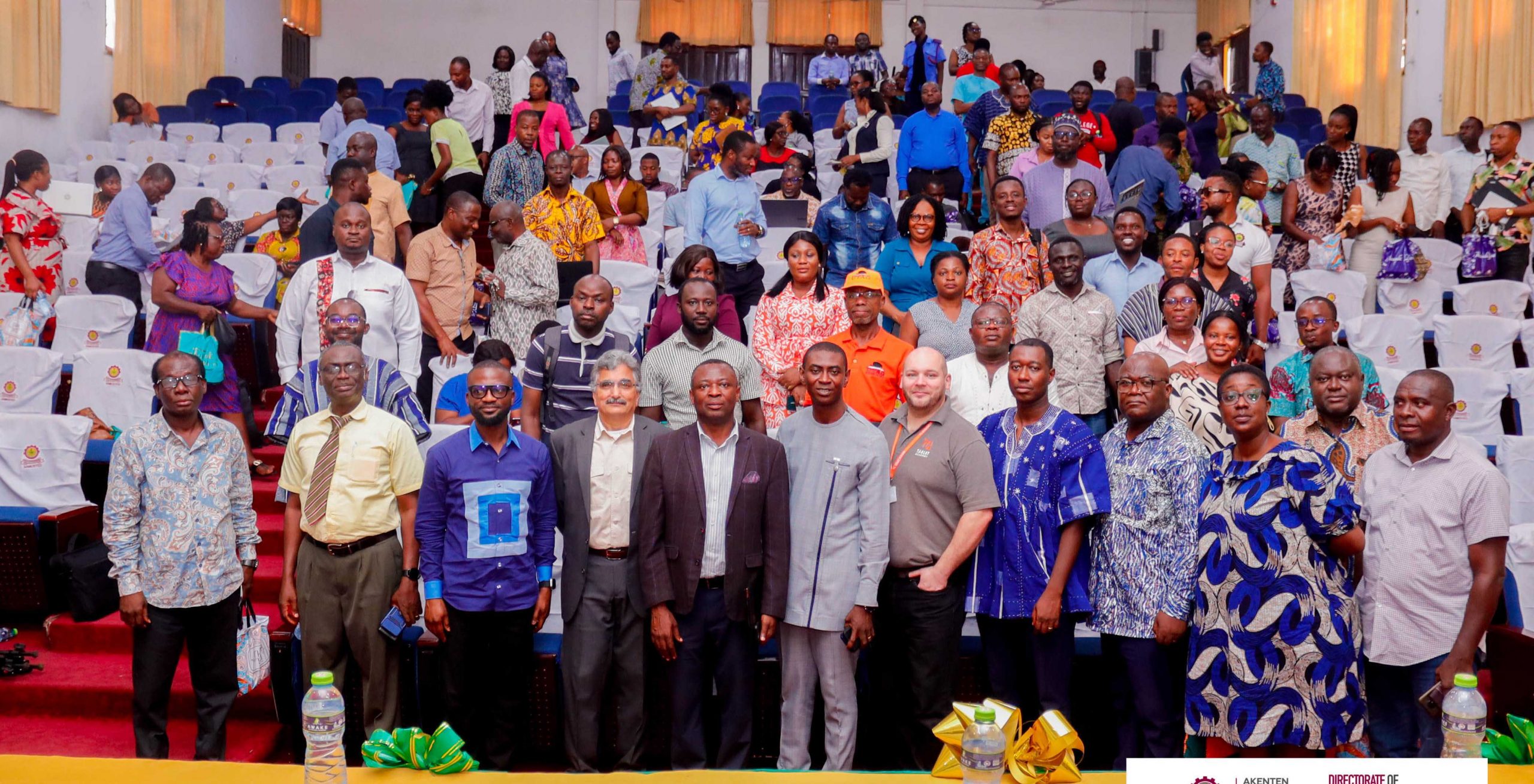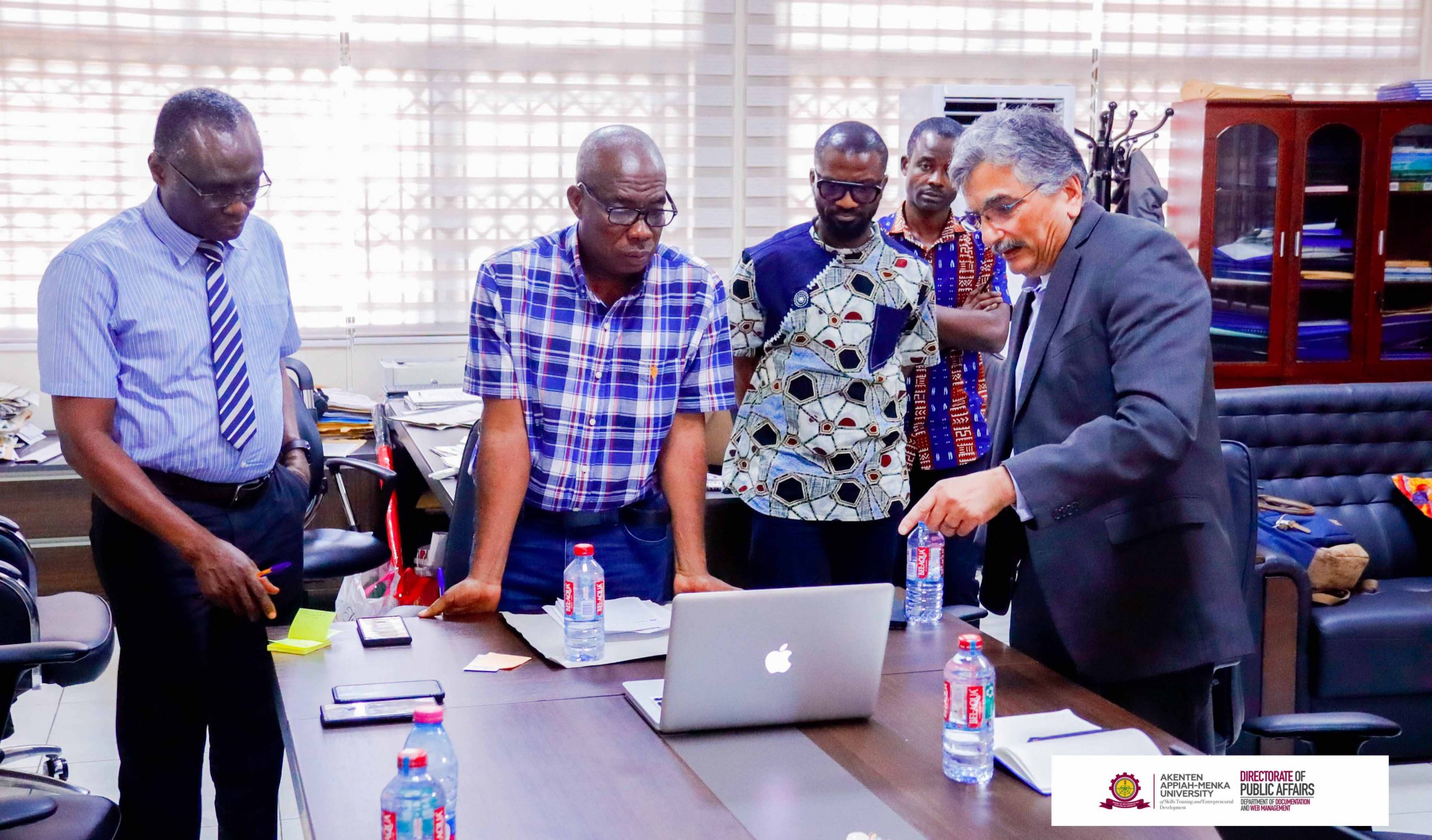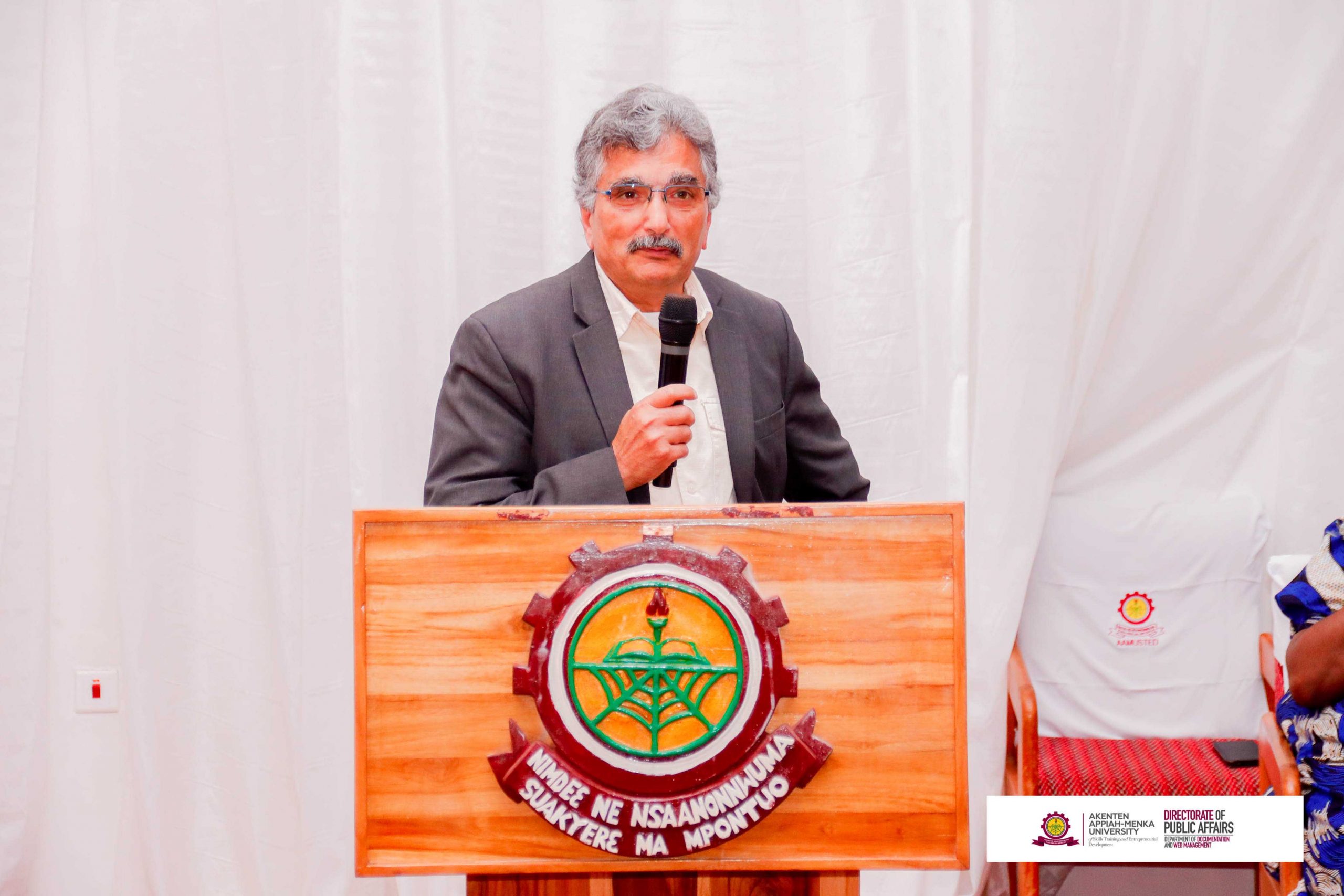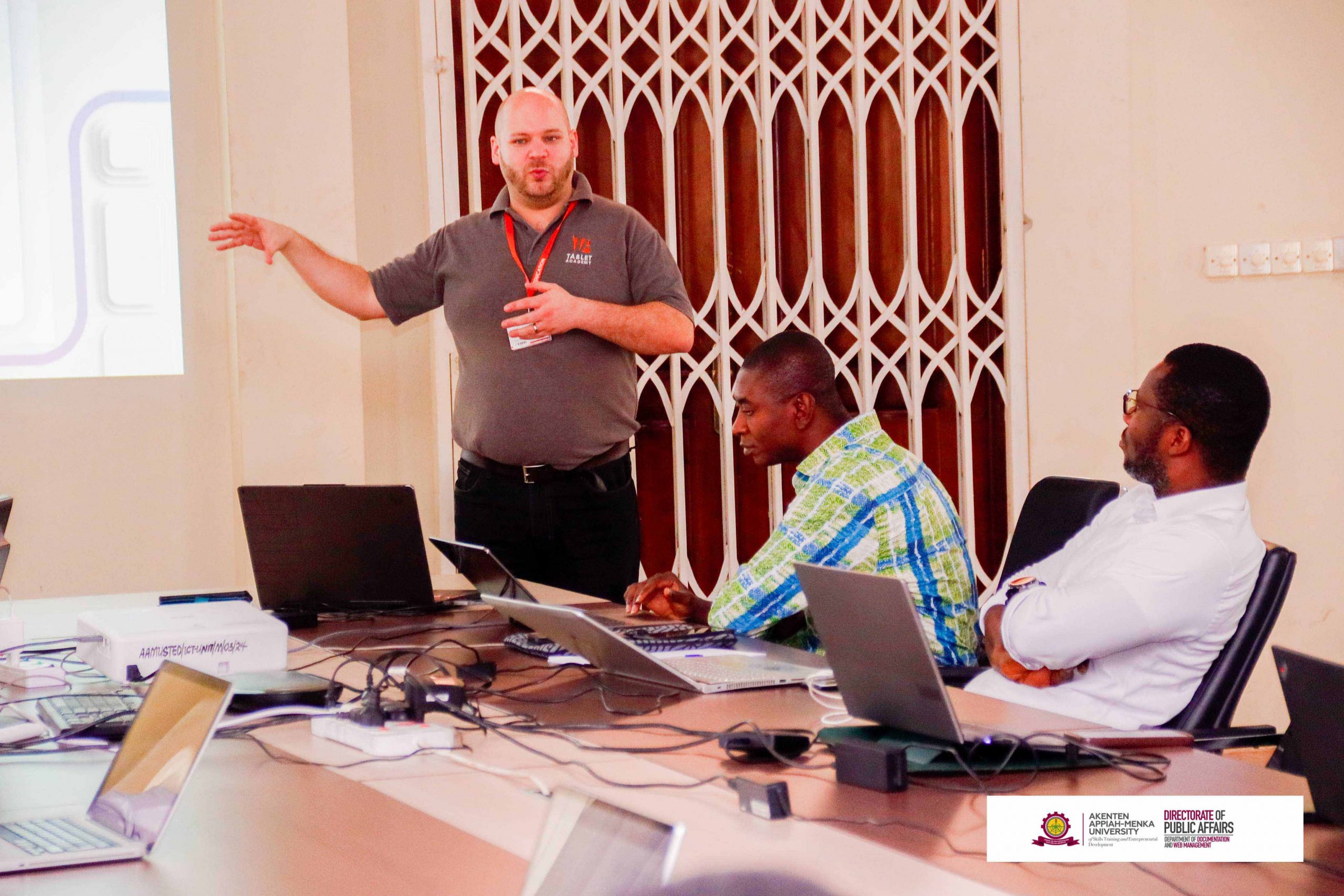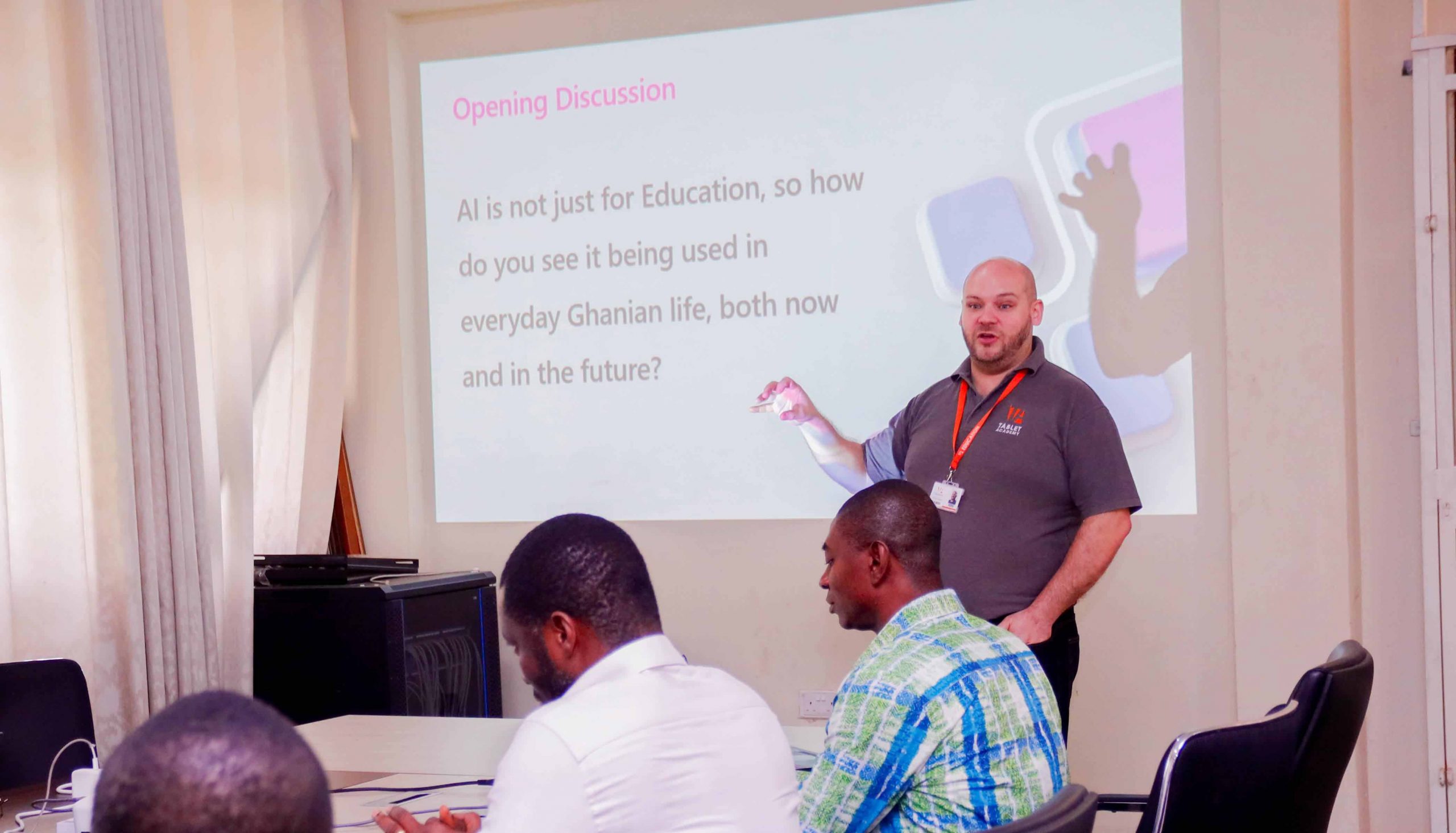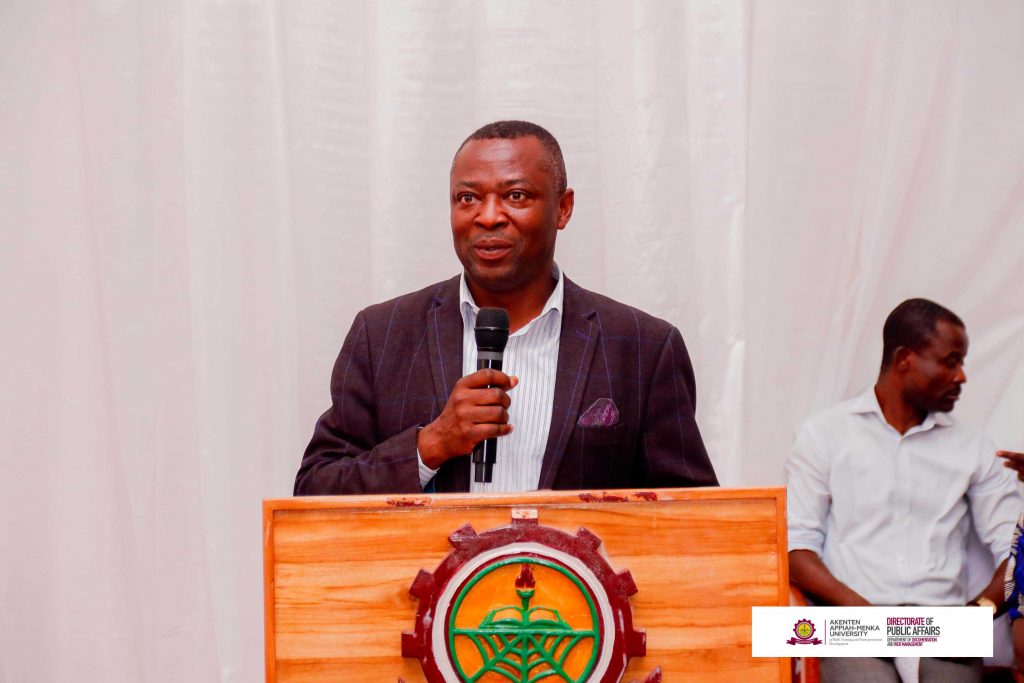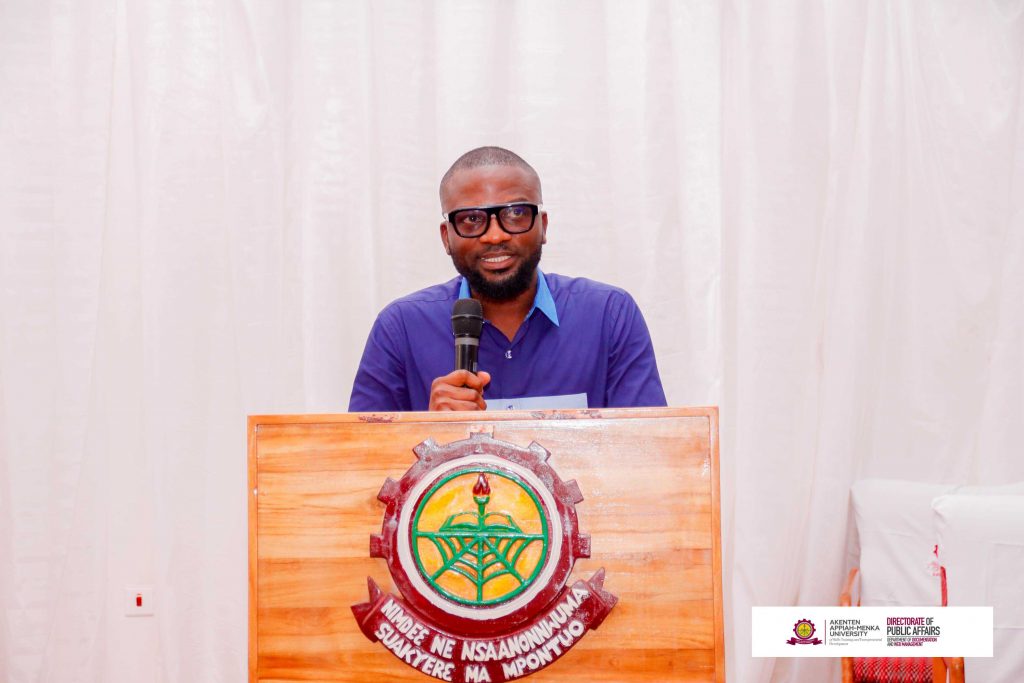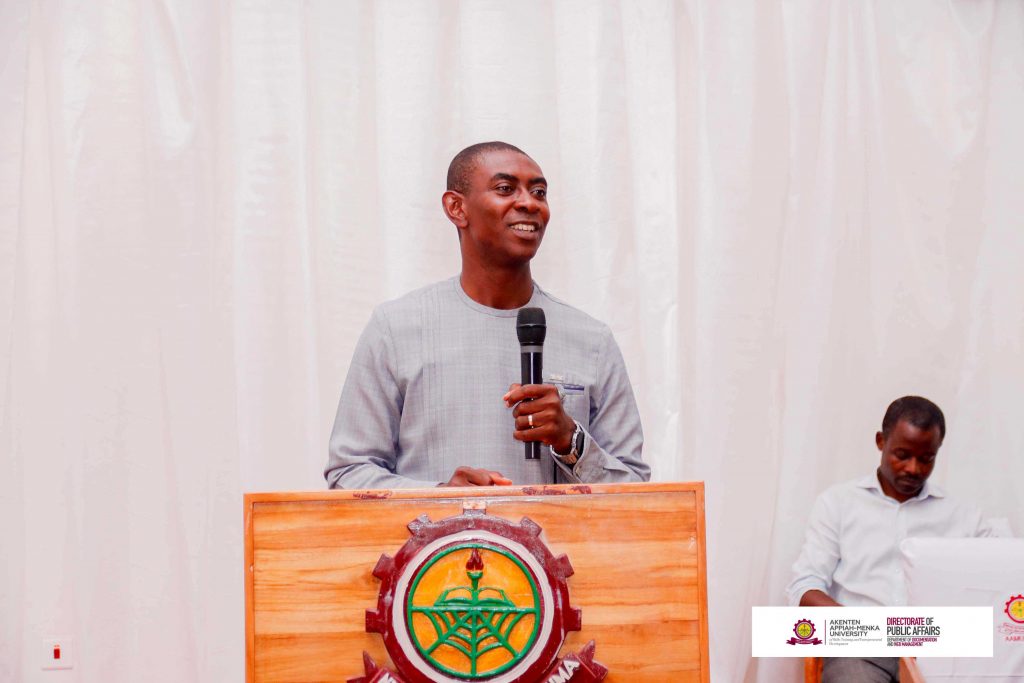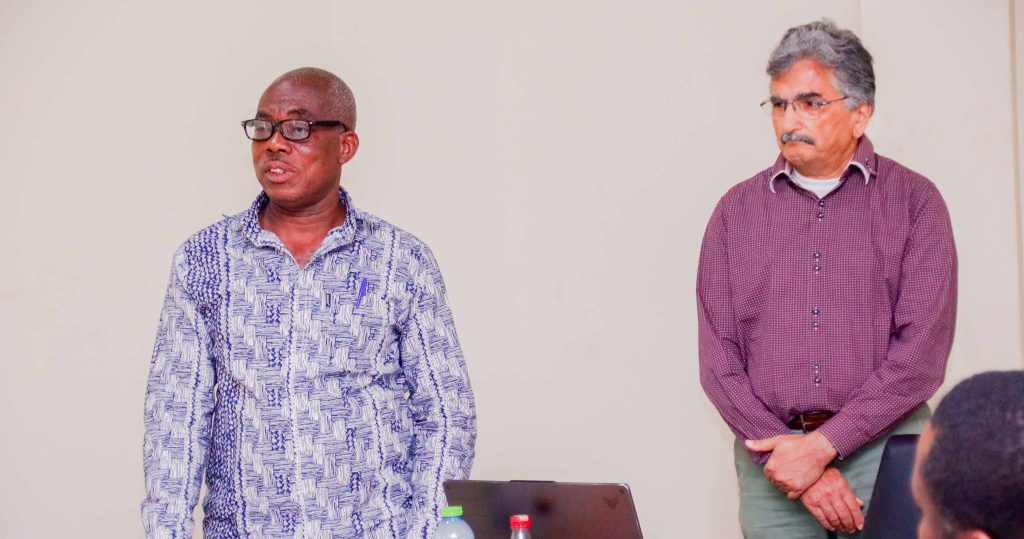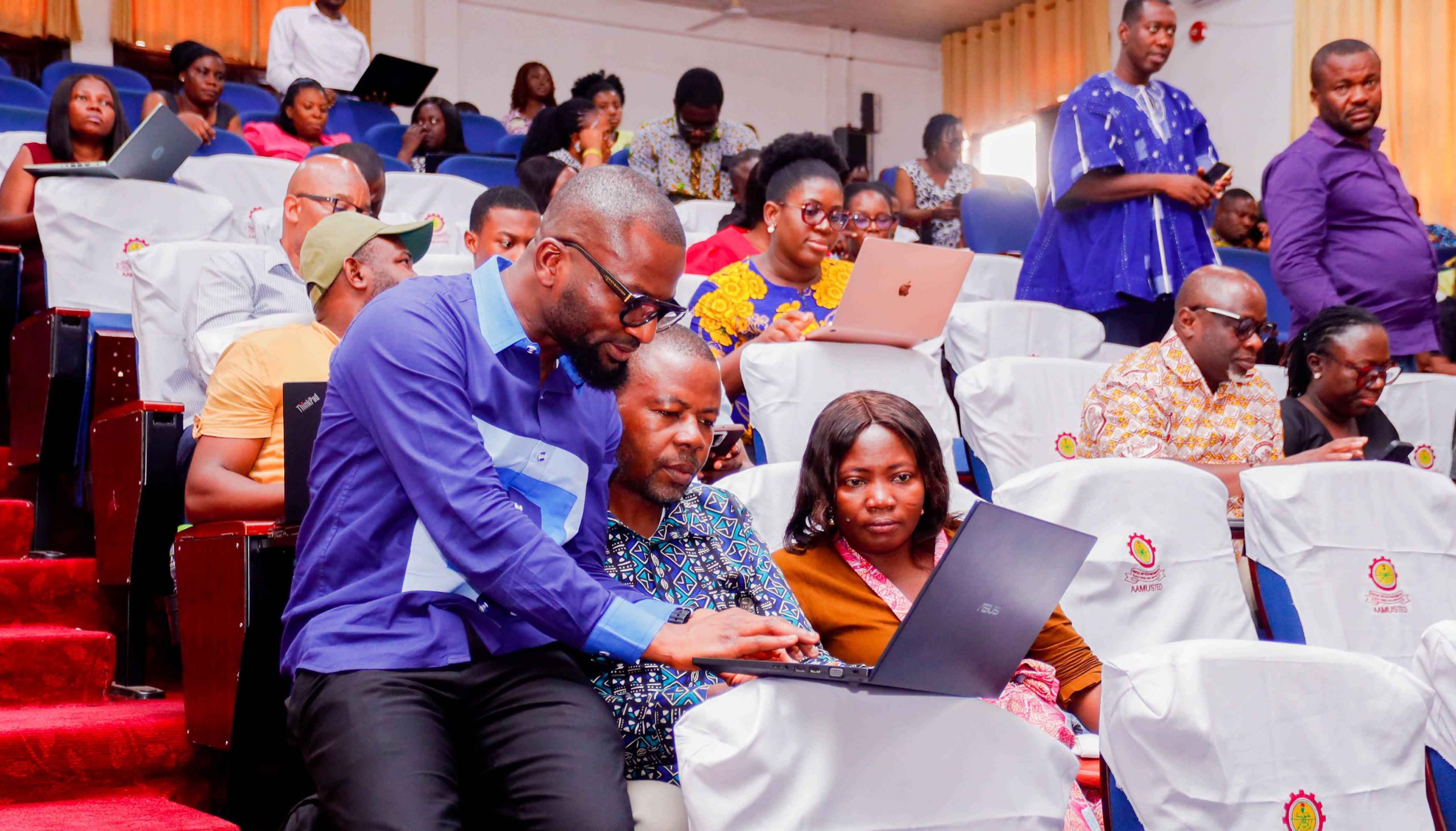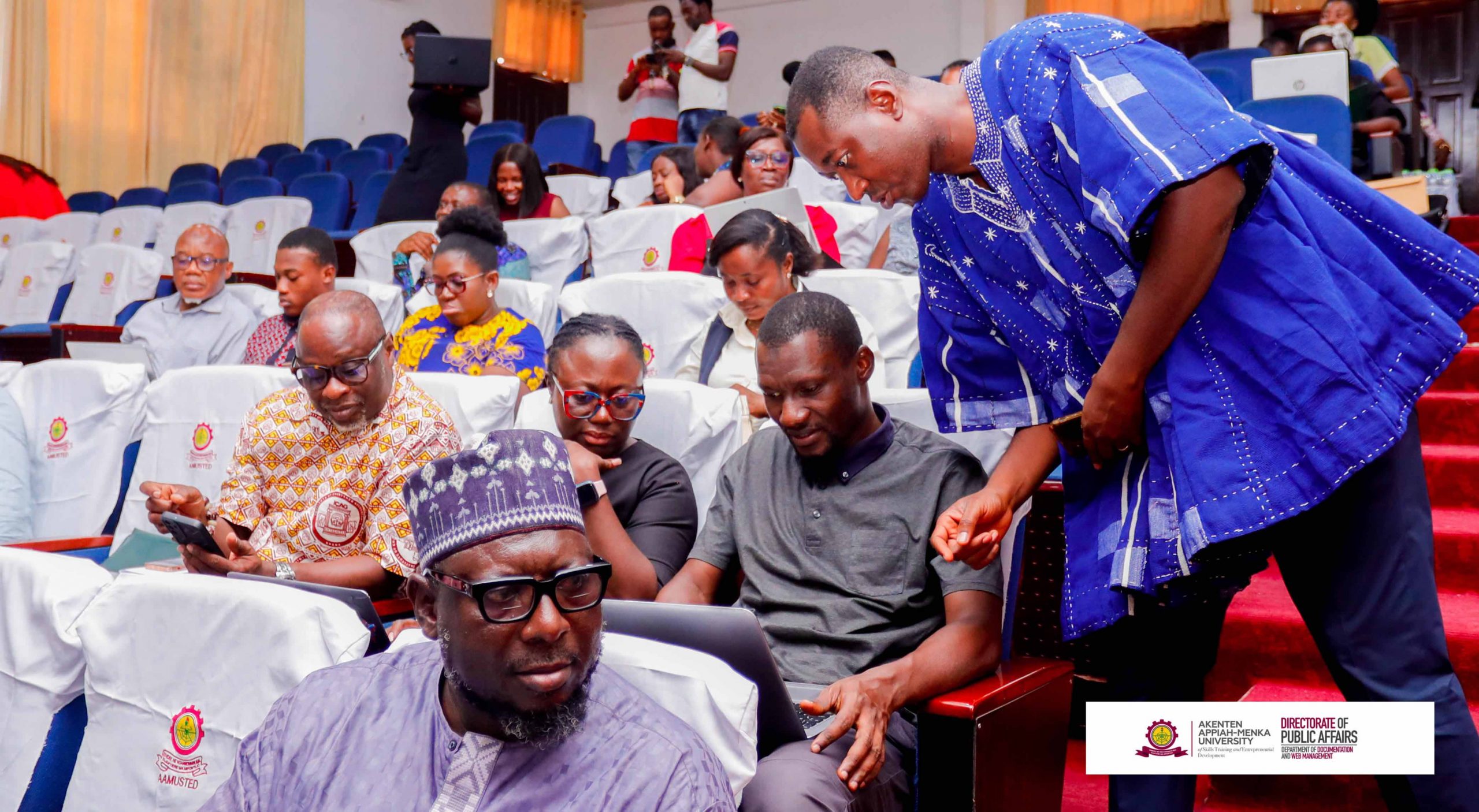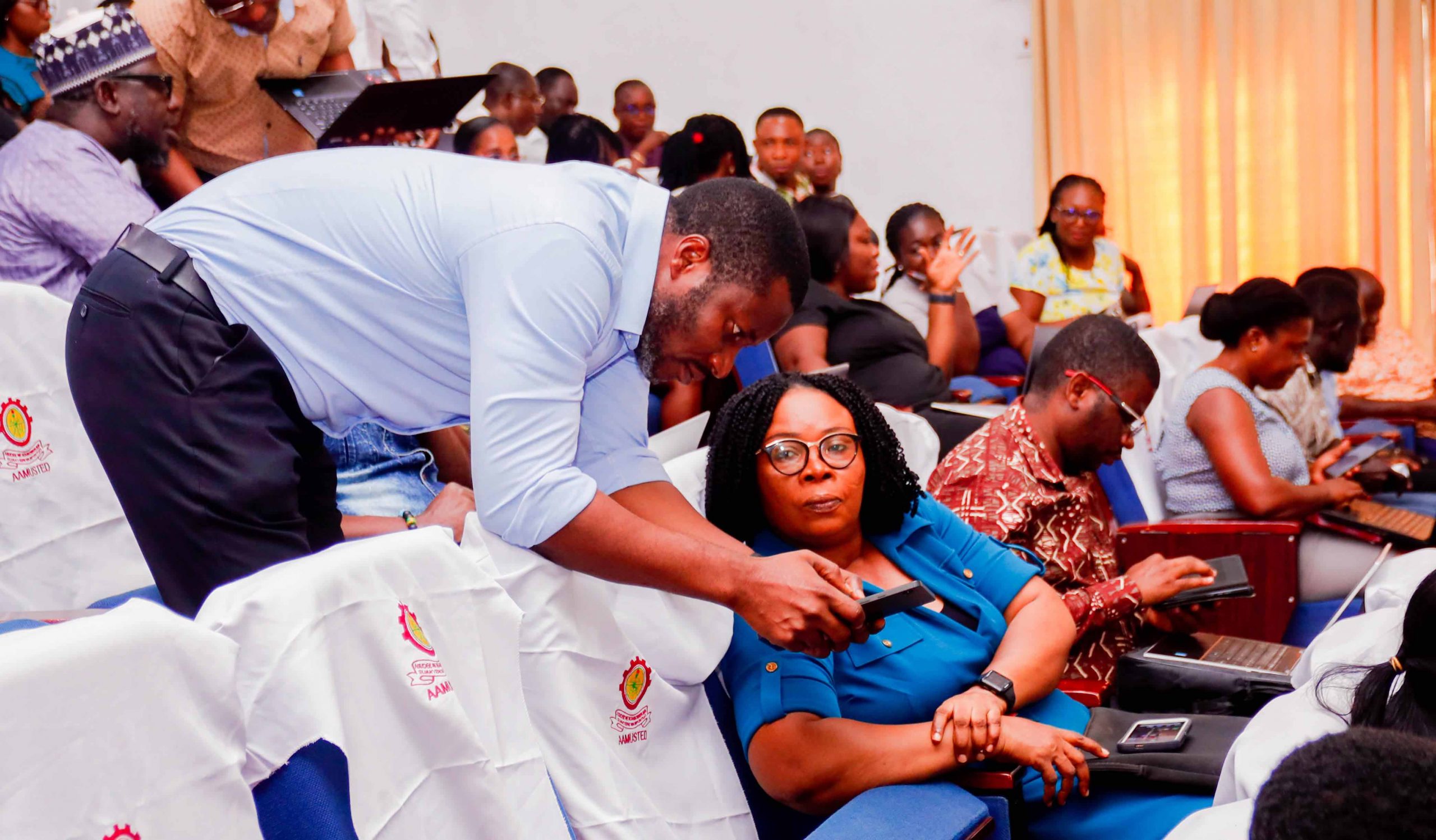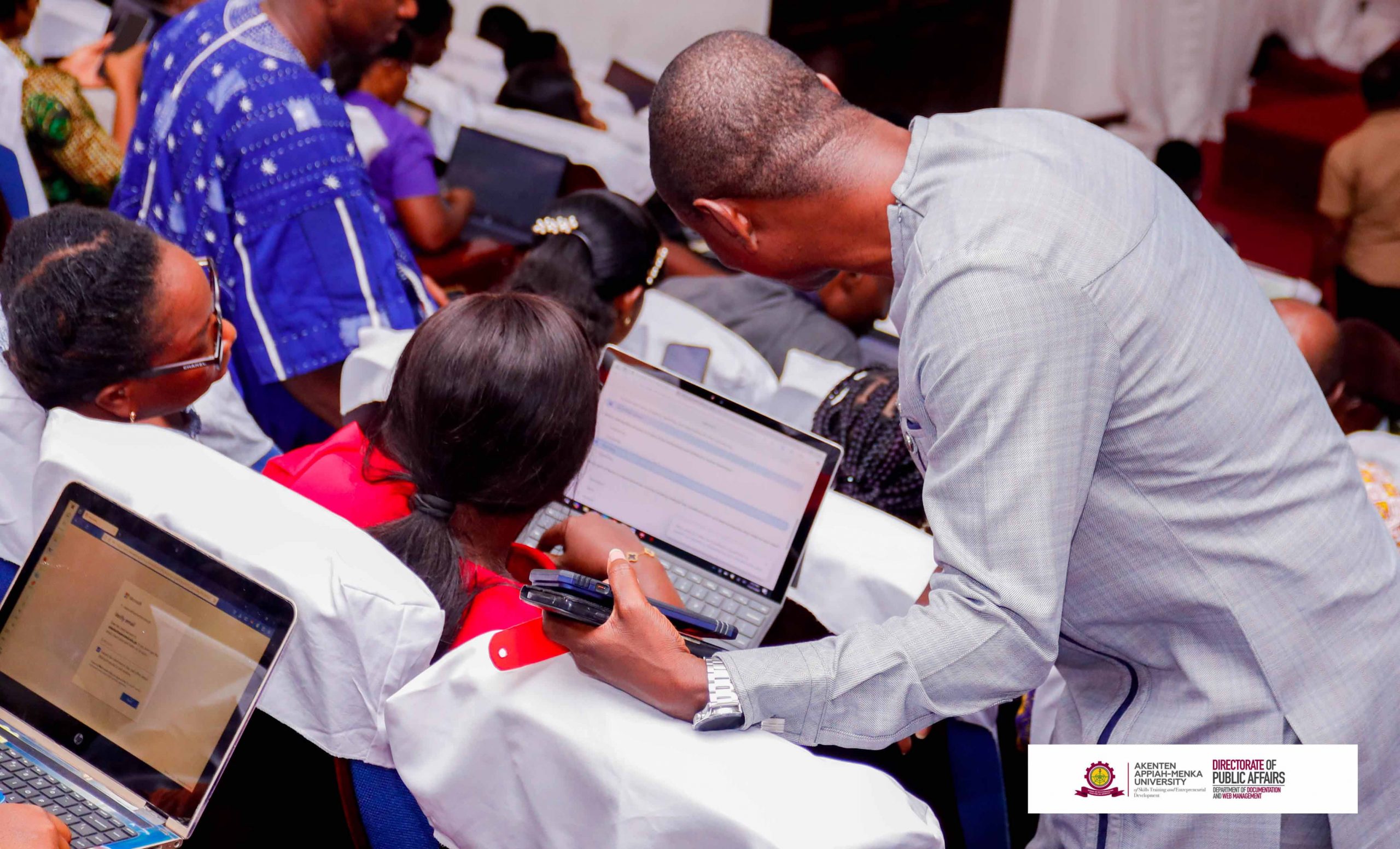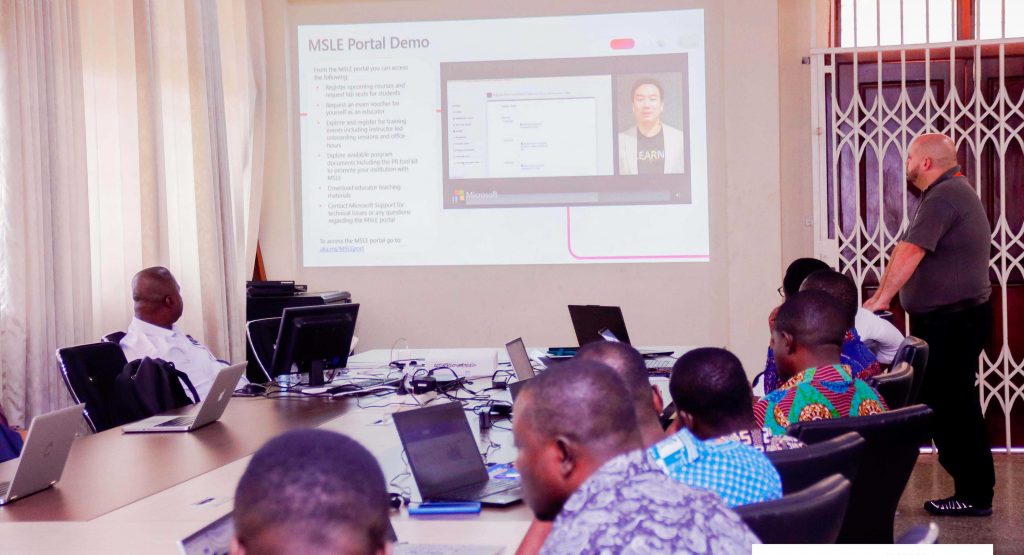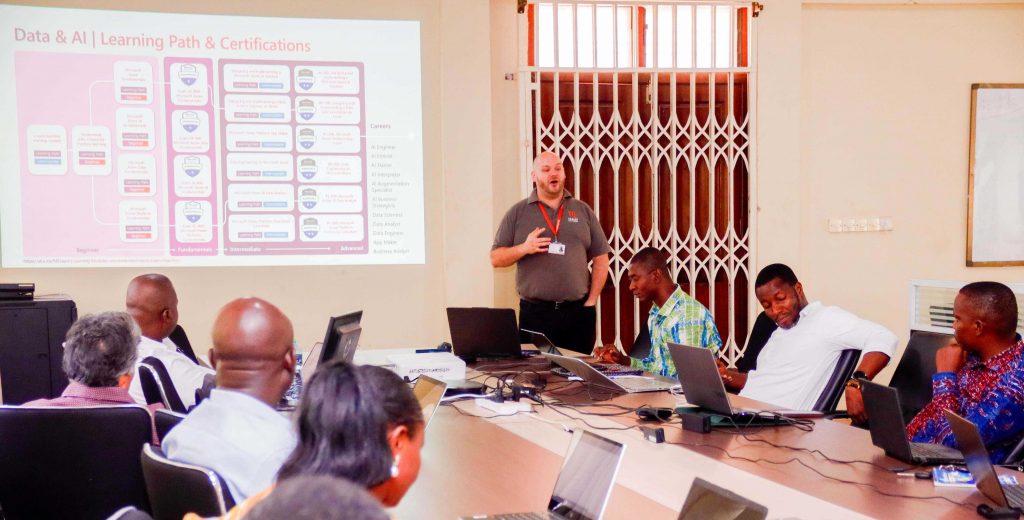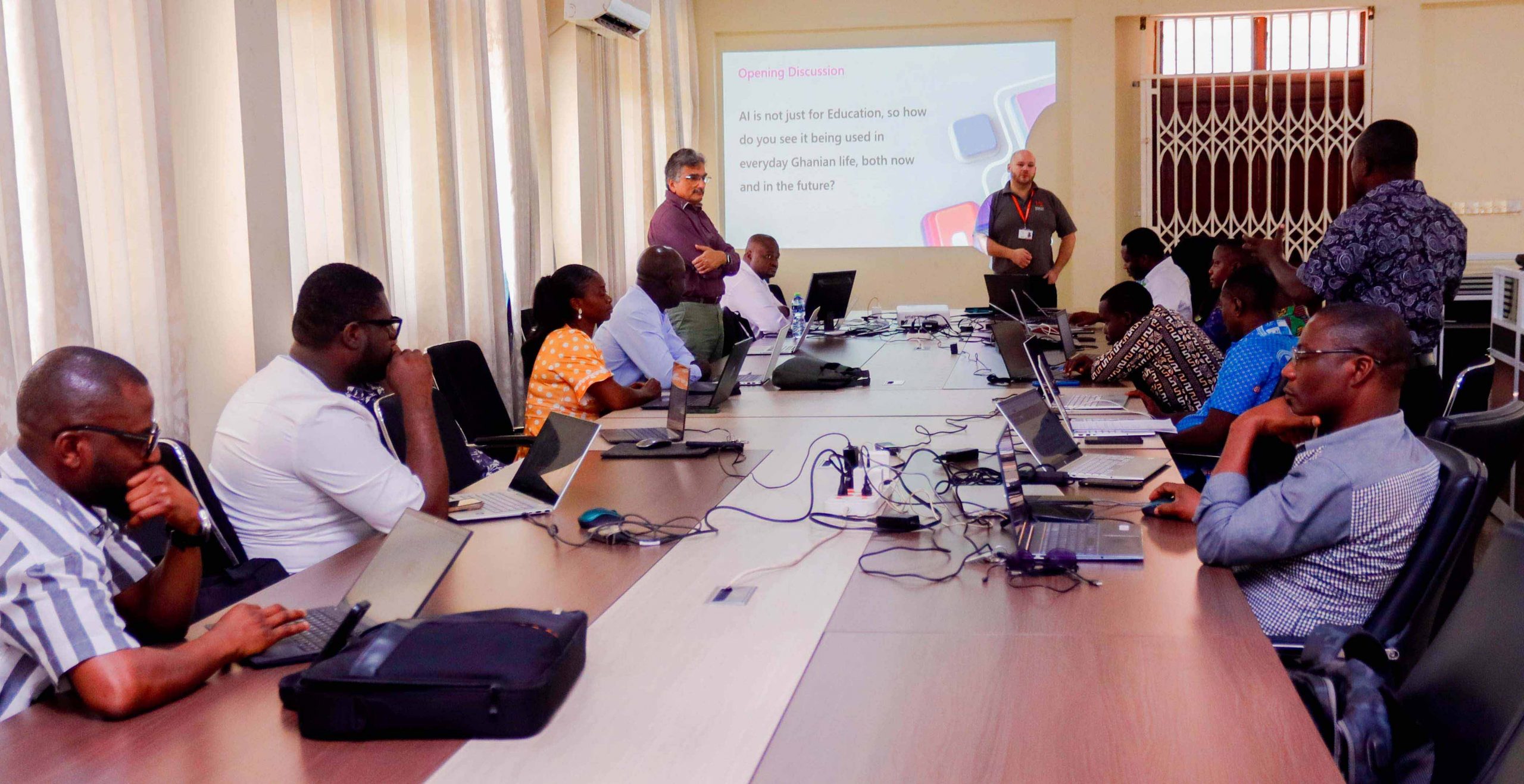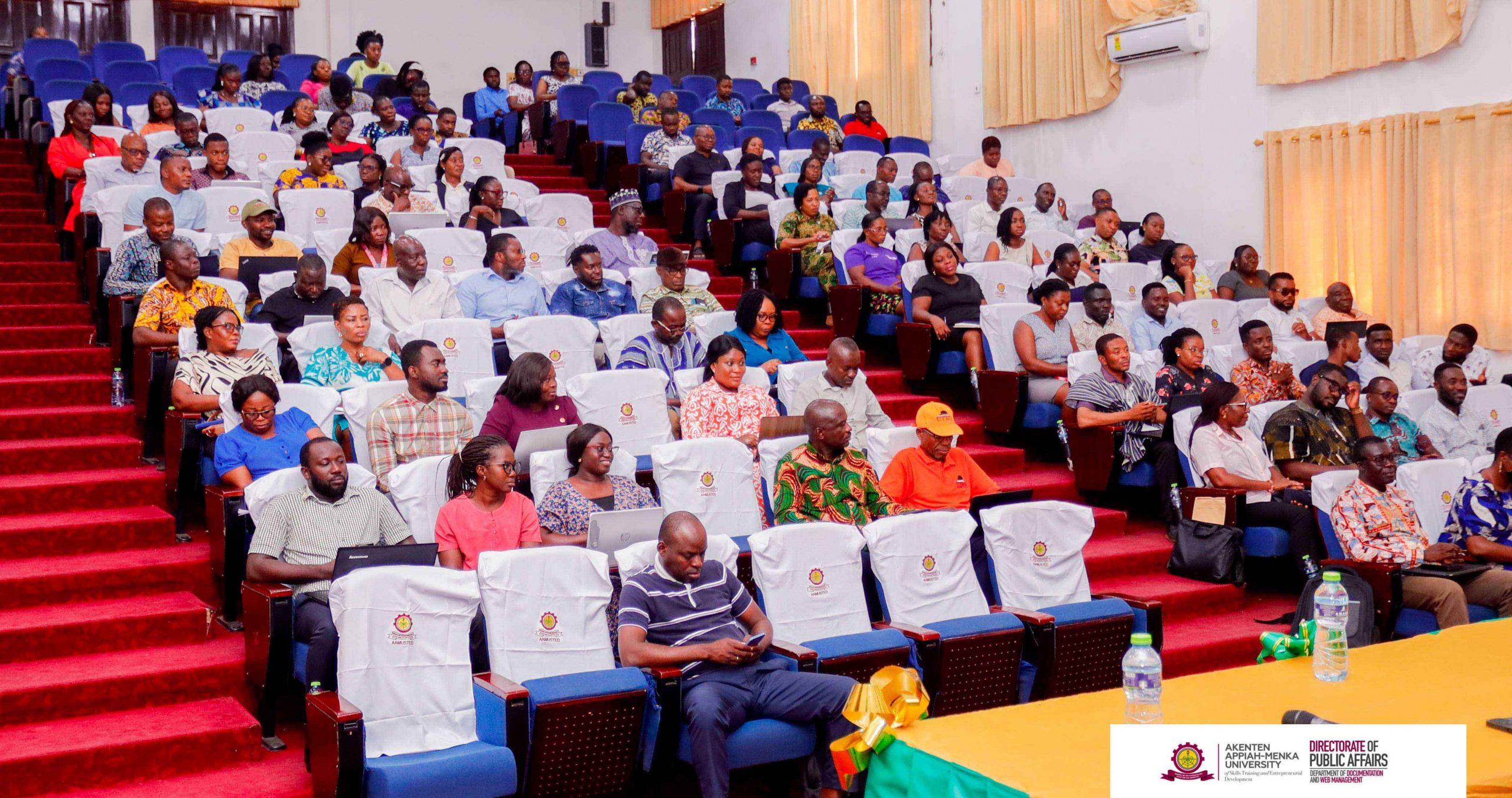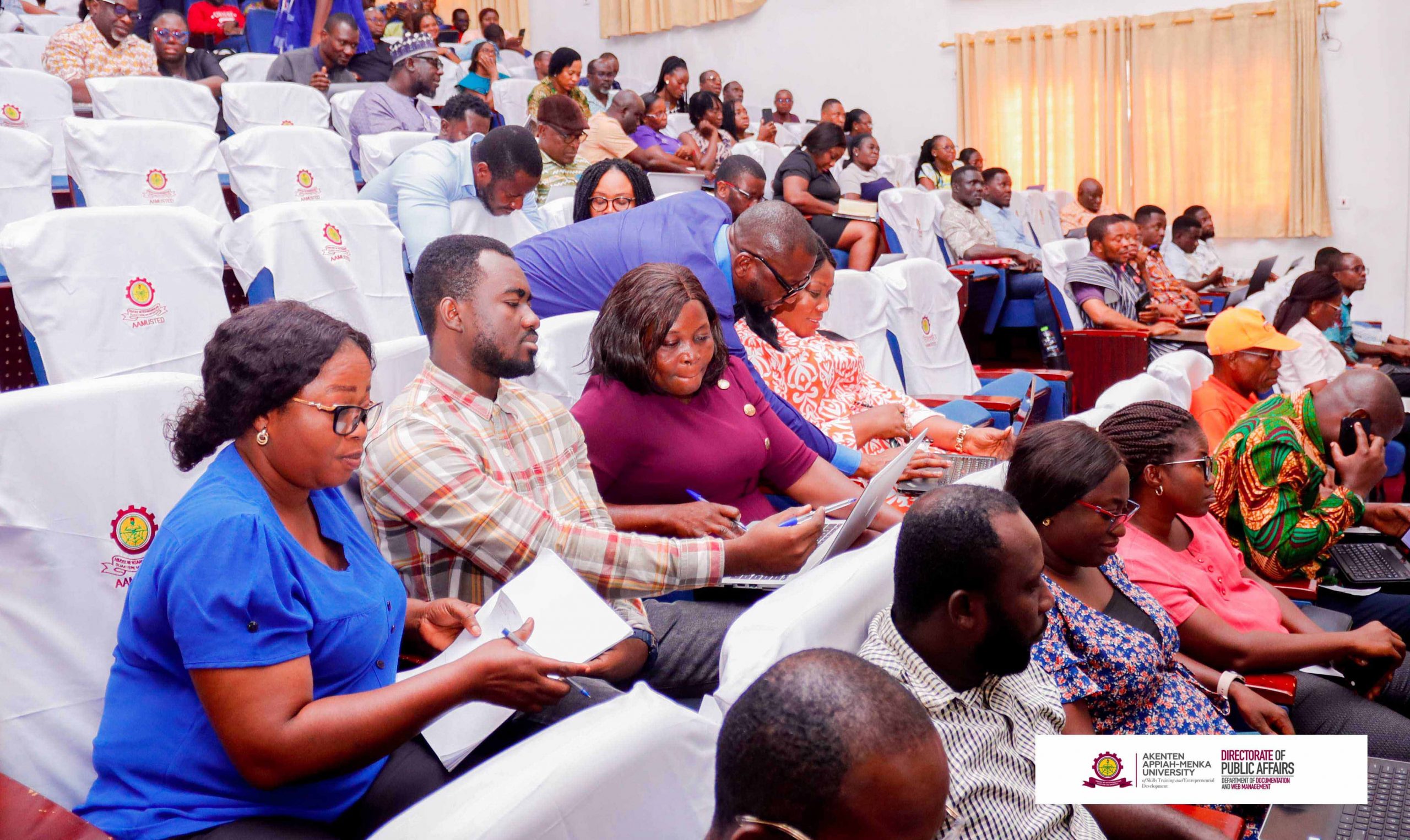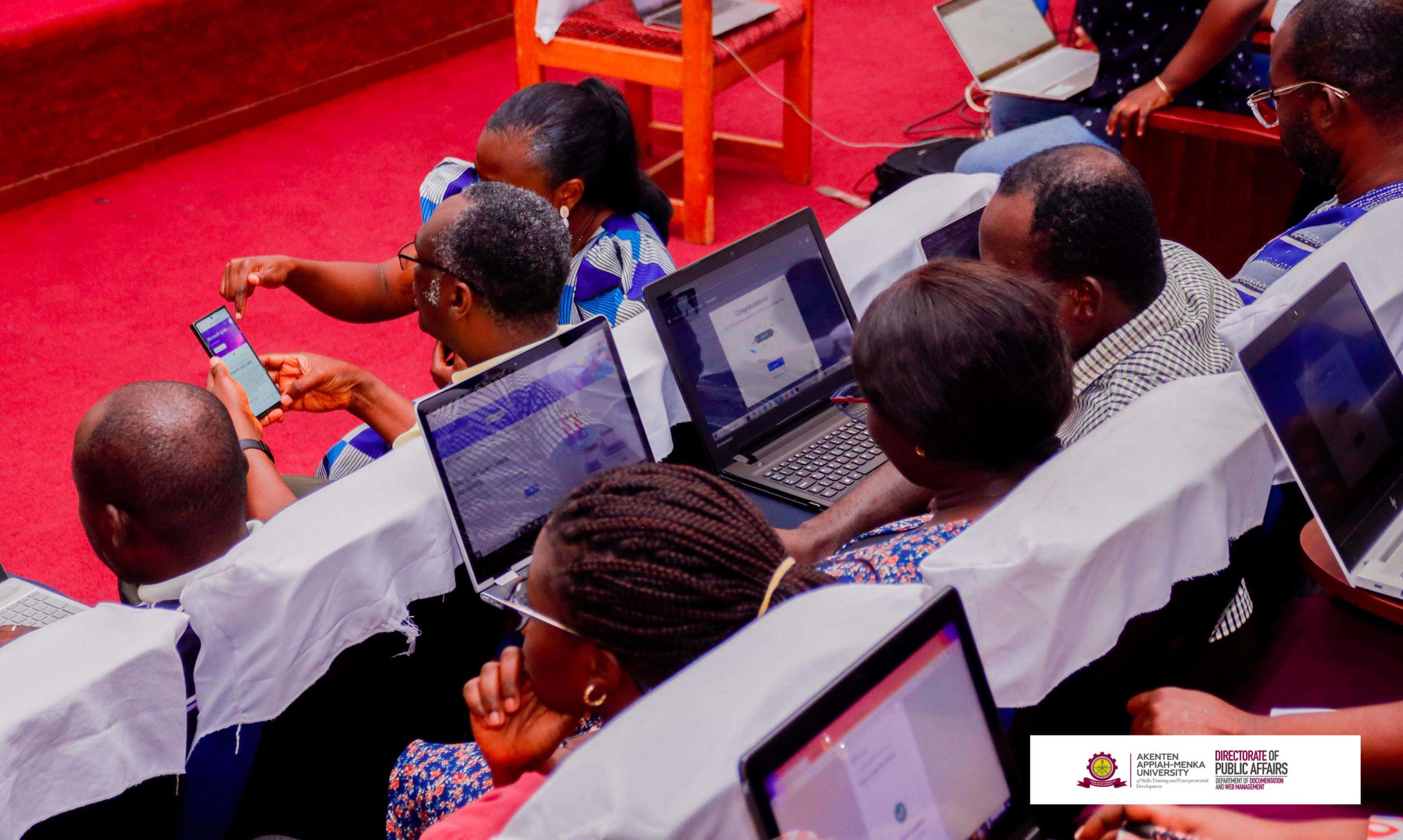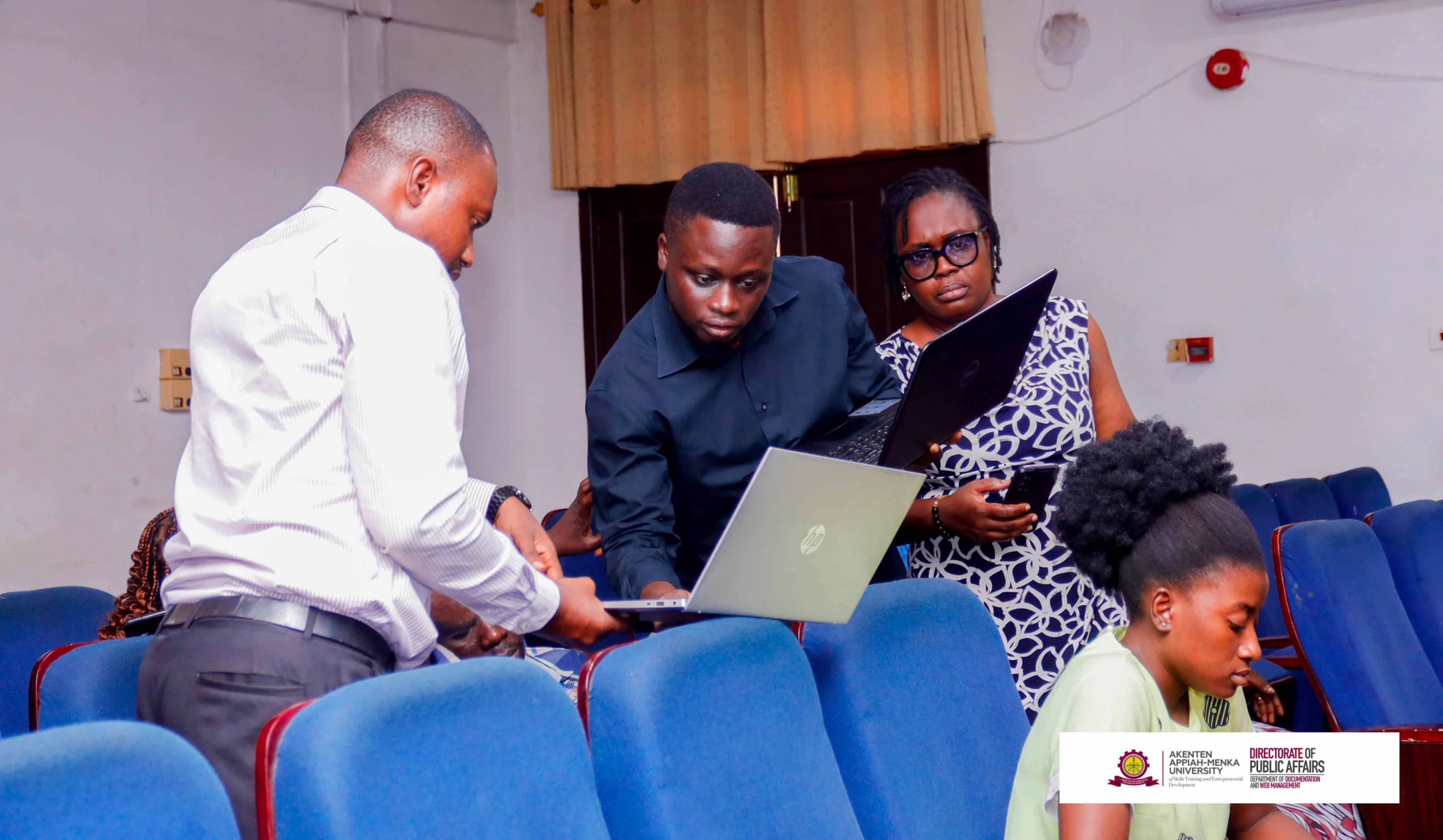The staff of the Akenten Appiah-Menka University of Skills Training and Entrepreneurial Development (AAMUSTED) are undergoing training to acquire Digital Skills, following the choice of the University as the focal institution to lead Ghana’s Digitalisation Skills Development agenda under the Better Education for Africa’s Rise Phase Three (BEAR III) Project. BEAR III is a UNESCO project with funding from the Republic of Korea seeking to strengthen TVET Systems in selected African Countries.
The Vice-Chancellor, Prof. Frederick Kwaku Sarfo (in checkered shirt) and some officials of AAMUSTED in a group photograph with the team from UNESCO, Microsoft, and Tablet Academy
As part of its aims to support 10 million youth and adults worldwide in building skills for improved employability and resilience by 2029, UNESCO, through its Global Skills Academy (GSA) and partners, including Microsoft, IBM, CISCO, HP, etc., is offering free and certifiable digital skills training to AAMUSTED Staff. Specifically, the training for the AAMUSTED Staff focuses on technological advancements and the integration of AI in teaching, learning, and administration of the University, among others.
The training began in September 2024 with staff orientation on the project. Subsequently, UNESCO and Microsoft sent two (2) experts – Mr. Bijaya Dhungana, Director, Tablet Academy, Benelux, Netherlands, and Mr. Ross Hunter, Senior Manager, Tablet Academy, United Kingdom – to offer training to some 20 Master Teacher Trainers (MTT) of staff and officially launch the Digital Skills training for all staff from November 18 – 21, 2024.
AAMUSTED Master Teacher Trainers at the training bootcamp
The Pro Vice-Chancellor of AAMUSTED, Prof. Isaac Boateng, launched the training on behalf of the Vice-Chancellor, Prof. Frederick K. Sarfo, on November 21, 2024.
He expressed happiness that AAMUSTED was selected for the training in Ghana. He was optimistic the training would support AAMUSTED staff in building capacity in digital systems and communication skills.
He, thus, encouraged them to take advantage of the opportunity to equip themselves to enhance the academic and administrative work of the University.
He assured UNESCO and its partners of the University’s readiness to extend necessary support and create a conducive environment to ensure the project’s success.
For his part, the Dean of the Faculty of Technical Education (FTE) and the University’s lead representative on the UNESCO project, Prof. Emmanuel Appiah-Kubi, said the Digital Skills training would be extended to all students of the University after the staff training. That, he said, would be a route for eventually transferring knowledge to the various levels of the country’s education.
The Vice-Chancellor, Prof. Frederick K. Sarfo sharing some words of encouragement with the AAMUSTED Master Trainers during his visit to the boot camp
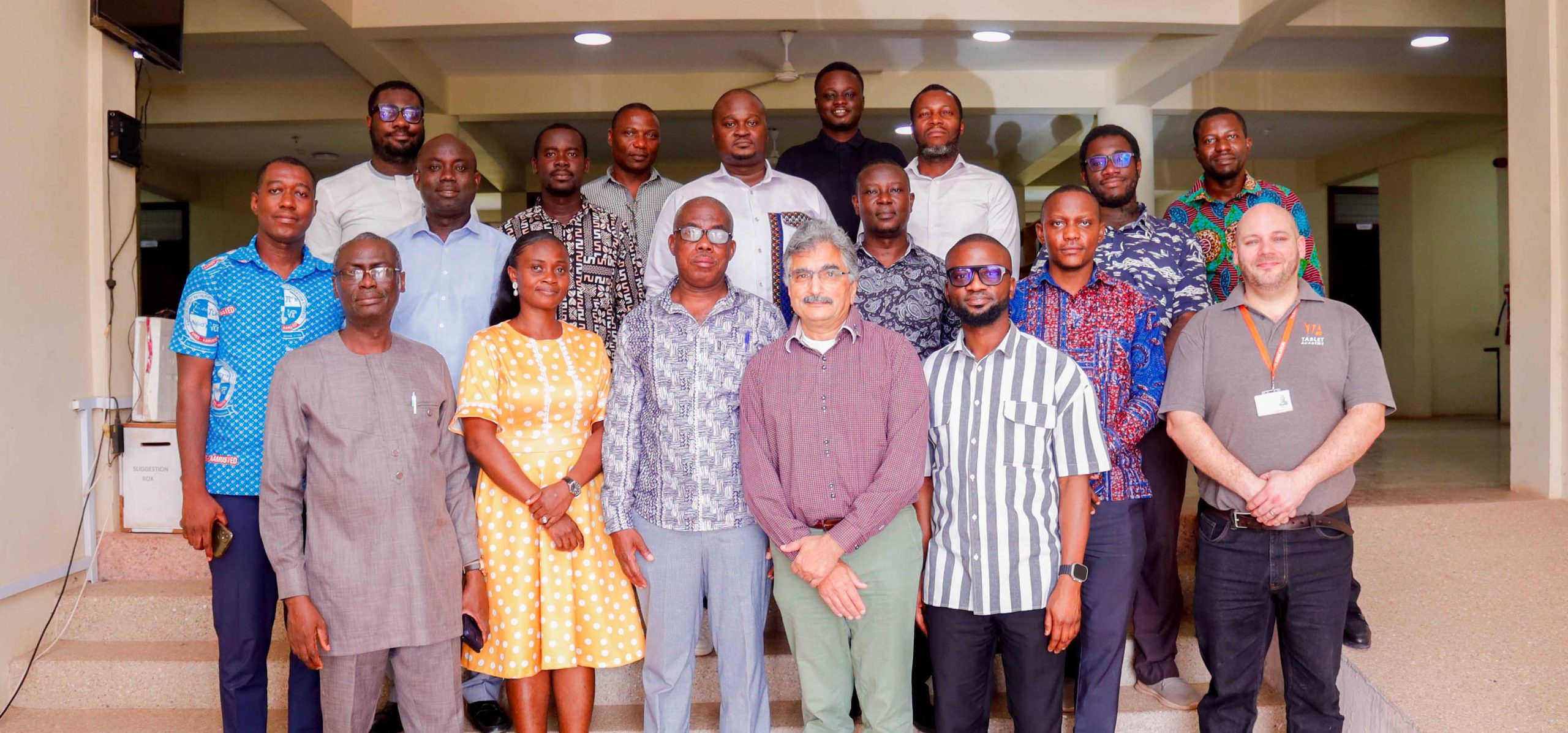
The UNESCO representative on the Project, Mr. Michael Boateng, emphasised the Government of Ghana’s special interest in leveraging TVET and entrepreneurship to achieve rapid national development, employment, job creation, and industrialisation.
He was happy that AAMUSTED had taken its mandate in TVET and Entrepreneurship Development very seriously, exploring ways to achieve it. UNESCO, he said, was proud to work with AAMUSTED and assured it of continued partnership into the future.
Mr. Dhungana was overwhelmed by the hunger and drive exhibited by the AAMUSTED management and staff to take the lead in what he described as the digital transformation journey.
Some of the Master Trainers assisting other staff of AAMUSTED to sign up on the MS Learn Platform as part of the official launching of the training programme
“I was overwhelmed by the seriousness of the 20 staff we trained as Master Teacher Trainers and the eagerness of many staff to register to begin their MTT training.” He indicated that even before the end of the official launch, nearly 100 staff had registered.
With that enthusiasm, he said many of the AAMUSTED staff would soon have a digital license, with which they could maximise the use of AI to benefit themselves as individuals, the University, and the country.

